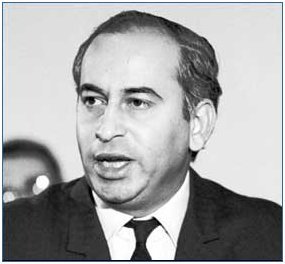Follow Us On:
The manifesto of PPP during the election of 1970 contained the bureaucratic and administrative reforms. After the establishment of PPP government to accomplish the task a high power committee was formed. This committee presents the suggestion to create a more efficient administration. Many of the recommendations by the committee were implemented by the government.
When Bhutto came into power the first task taken by his government was the purging of CSP officers. The task was done in several steps. It was conceived that the bureaucracy was gone very corrupted during the Ayub regime. So in order to bring it back to its original form the corrupt officers must be eliminated. In order to dismiss the CSP’s Martial Law Regulation 114 was implemented. According to MBR-114 the accused person can not defend himself on 5 February 1972. On 12 March 1972 a large scale purging was done in which about 2000 public servants were removed from their posts. More officers were dismissed during the short time after it. Only ten of the officers were restored, later. The officers were dismissed without any notification. Purging MLR-114 was used in 1973, 1975 and 1976 respectively. To accomplish the short coming of the officer that was due to the debacle of Dhaka and the purging of the officers, number of reforms was introduced. Lateral Entry Scheme was one of those reforms. It allowed the induction of highly qualified personnel. Five thousand four hundred personnel were absorbed in this regard. Two thousand and eight hundred were inducted in the centre while the rest were in the provinces. There was no specific qualification for the inductees. In 1976 lateral entry was transferred to public service commission and 10 percent quota was fixed for it.
The other reform that was introduced in this regard was the replacement of old system of class to a grade system. Initially there were four classes but now there were 22 grades for all the administrative structure. Now the pay scale was same for the servant of the same grade. This was done by the National Pay Commission from 1970-72 for the sake of unity and equality. All above were the administrative reforms made in Bhutto’s era.

